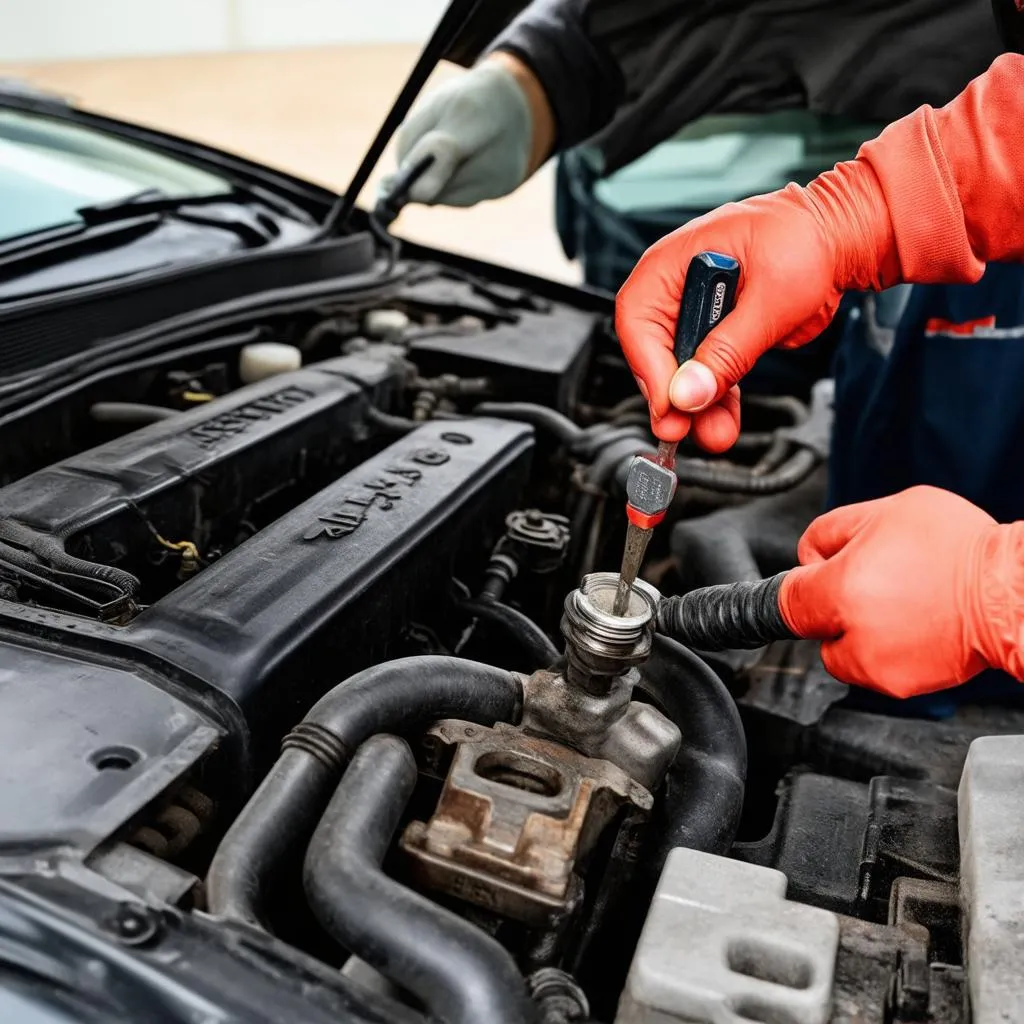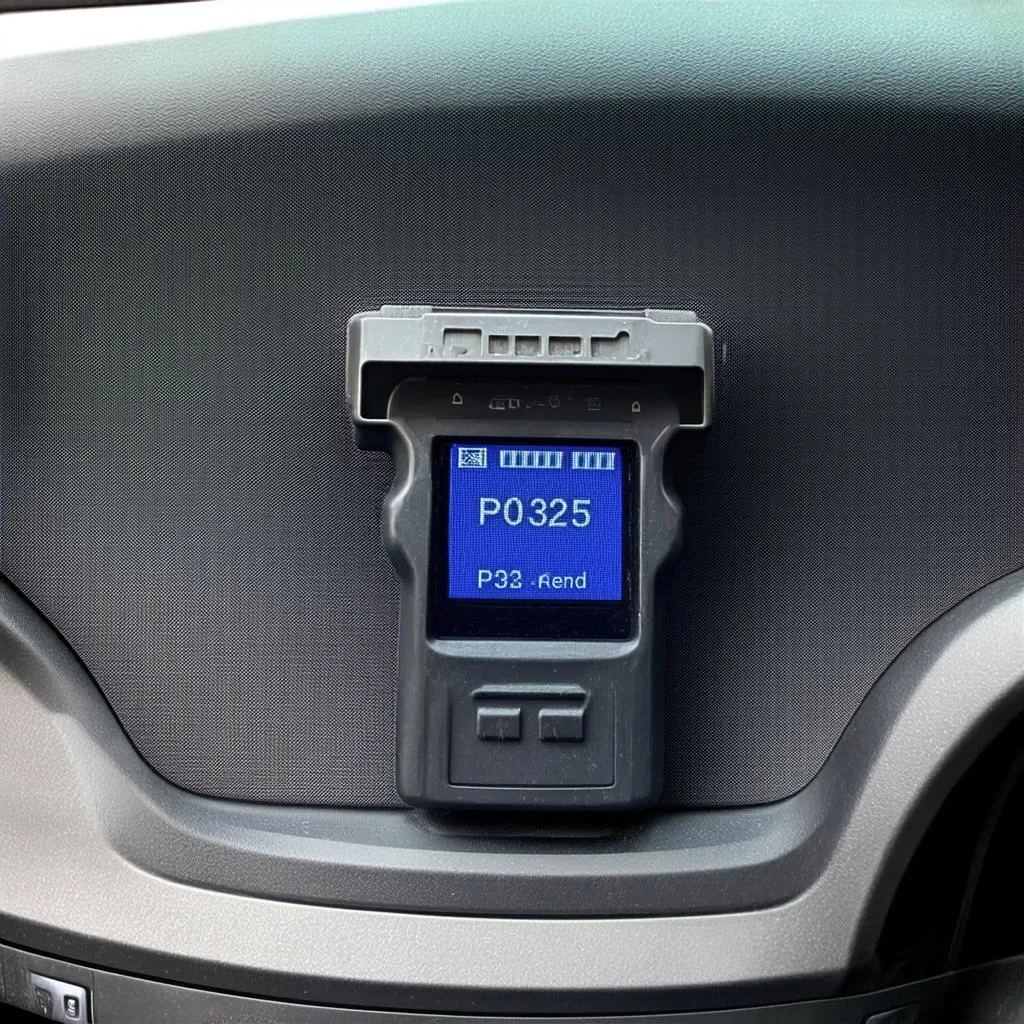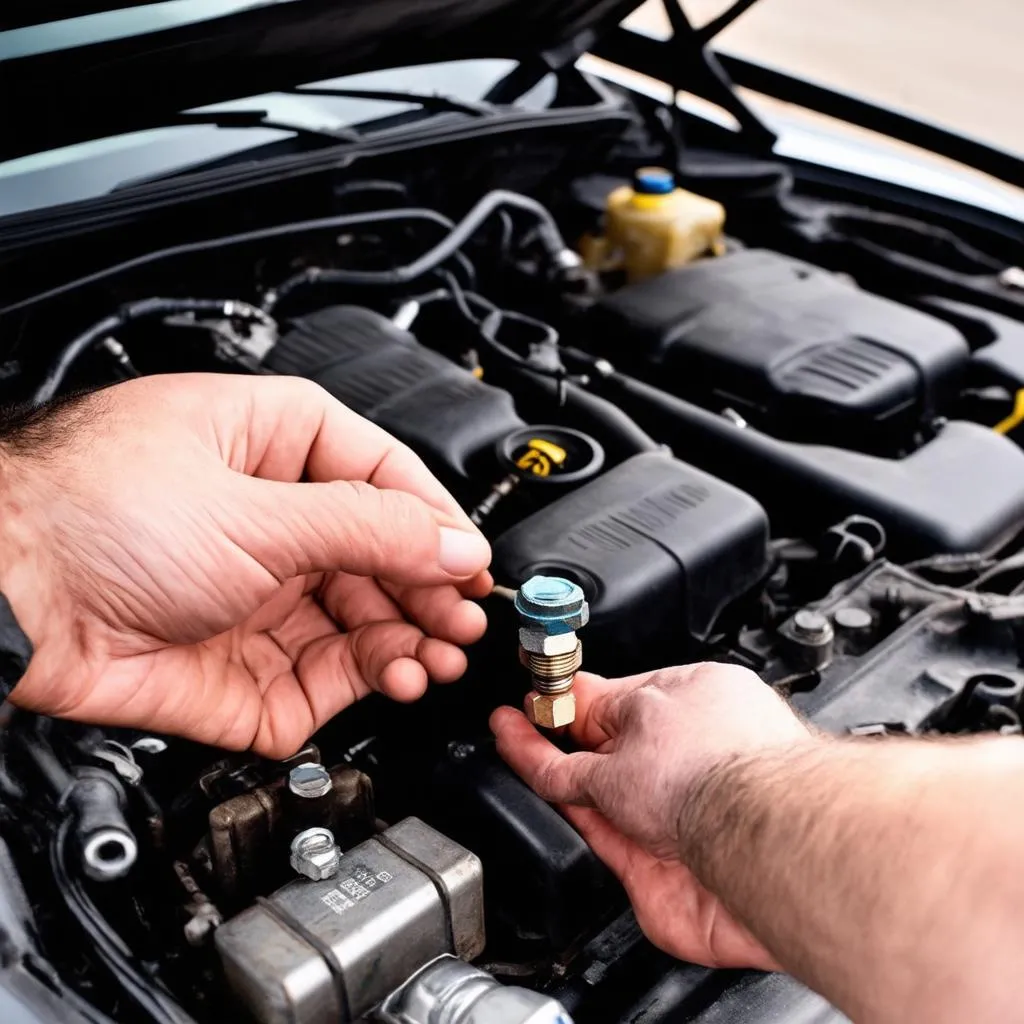Have you ever encountered an error code that left you scratching your head? Perhaps you were cruising down the highway when the “check engine” light suddenly illuminated on your dashboard. You pull over, grab your trusty OBD2 scanner, and the dreaded P0325 code flashes before your eyes. This can be a frustrating experience, especially if you’re not sure what it means or what steps to take next.
Understanding OBD Code P0325
The OBD code P0325, or “Knock Sensor 1 Circuit Malfunction,” signifies a problem with the knock sensor, a crucial component in your car’s engine management system.
What is a Knock Sensor and Why is It Important?
The knock sensor is a small device that monitors engine knocking or detonation, an uncontrolled explosion of the air-fuel mixture inside the combustion chamber. This knocking can occur when the air-fuel mixture ignites prematurely, causing a loud, metallic knocking sound.
Here’s a metaphorical explanation: Imagine you have a perfectly timed fireworks show, where each firework explodes in a beautiful sequence. Now, imagine a rogue firework exploding prematurely, disrupting the entire show. That’s what engine knocking is like – it disrupts the smooth operation of the engine, potentially damaging internal components.
The knock sensor acts as your engine’s safeguard against this disruption. It detects knocking by monitoring vibrations in the engine block. When it senses excessive knocking, it sends a signal to the engine control module (ECM). The ECM then adjusts the ignition timing and fuel delivery to reduce knocking and protect your engine.
What Can Cause a P0325 Code?
A P0325 code usually indicates a fault in the knock sensor itself or its associated circuitry. Here are some common causes:
- Faulty Knock Sensor: The sensor itself can become damaged due to age, wear and tear, or exposure to extreme temperatures.
- Electrical Connection Problems: Loose connections, broken wires, or corrosion in the wiring leading to the knock sensor can disrupt the signal transmission.
- ECM Failure: In rare cases, the ECM itself may malfunction, leading to an incorrect interpretation of the knock sensor signal.
How to Diagnose and Fix the P0325 Code
The good news is that diagnosing and fixing a P0325 code is usually a straightforward process. Here’s what you can do:
- Inspect the Knock Sensor: Locate the knock sensor (often mounted near the engine block) and carefully inspect it for signs of damage or corrosion. You may need a repair manual for your specific vehicle to locate the sensor.
- Check Electrical Connections: Check the wiring leading to the knock sensor for loose connections, broken wires, or corrosion. Ensure all connectors are securely fastened.
- Use a Diagnostic Scanner: Connect a OBD2 scanner to your vehicle and review the data stream for any unusual readings from the knock sensor. This can provide valuable information about the sensor’s functionality and identify any electrical issues.
- Test the Knock Sensor (Optional): If you’re comfortable working with electrical systems, you can test the knock sensor with a multimeter to confirm it’s functioning properly.
- Replace the Knock Sensor: If the sensor is damaged or the wiring is faulty, you’ll need to replace the knock sensor. This is usually a straightforward repair that can be done by a qualified mechanic.
Common Questions About P0325 Code:
Q: What are the symptoms of a faulty knock sensor?
A: You may experience several symptoms, including:
- Reduced engine performance
- Engine misfire
- Rough idle
- Engine knocking sound
- Increased fuel consumption
- Check engine light illuminated
Q: Is it safe to drive with a P0325 code?
A: While driving with a P0325 code might not be immediately dangerous, it’s best to address the issue as soon as possible. Driving with a faulty knock sensor can lead to further engine damage and reduced fuel efficiency.
Q: Can a bad knock sensor affect fuel economy?
A: Yes, a bad knock sensor can significantly affect fuel economy. Since the ECM relies on the knock sensor to determine optimal ignition timing and fuel delivery, a faulty sensor can lead to inefficient combustion, resulting in increased fuel consumption.
Q: Can a bad spark plug cause a P0325 code?
A: While a bad spark plug can cause other engine problems, it’s unlikely to directly trigger a P0325 code. However, if the spark plug is causing premature ignition, this could lead to increased knocking, which the knock sensor will detect, ultimately triggering the code.
Additional Resources and Tips
- Consult a Repair Manual: Refer to a repair manual specific to your vehicle model for detailed information on diagnosing and fixing a P0325 code.
- Seek Professional Help: If you’re not comfortable diagnosing or repairing the issue yourself, consult a qualified mechanic.
- Regular Maintenance: Regular maintenance, such as oil changes, spark plug replacement, and air filter cleaning, can help prevent engine knocking and potential issues with the knock sensor.
 Knock Sensor Inspection
Knock Sensor Inspection
 OBD Scanner Code P0325
OBD Scanner Code P0325
 Mechanic Replacing Knock Sensor
Mechanic Replacing Knock Sensor
Conclusion
The P0325 code can be a common problem, but it doesn’t have to be a cause for major concern. By understanding the cause of the code, you can take the necessary steps to diagnose and fix the problem. Remember, regular maintenance and timely repairs can help keep your vehicle running smoothly for years to come.
If you need further assistance in diagnosing or repairing a P0325 code, please contact our expert team at TechCarUSA. We are here to help with any diagnostic tools or technical support you may need.
Contact us via Whatsapp:+84767531508 for expert 24/7 support.
We encourage you to share your experiences and any questions you might have in the comments below.